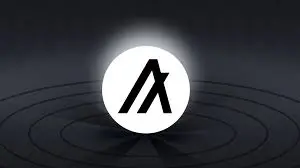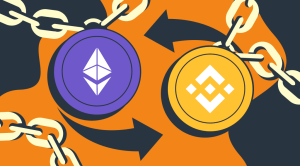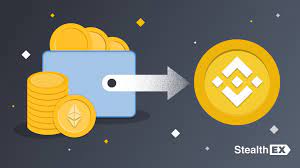
Convert ETH to ALGO involves understanding both blockchain ecosystems and choosing the right conversion method. This comprehensive guide will walk you through the process, explaining various approaches and key considerations.
Understanding the Cryptocurrencies
Ethereum (ETH)
- Launched in 2015
- Second-largest cryptocurrency by market cap
- Smart contract platform
- Proof of Stake consensus
- Powers DeFi and dApp ecosystem
Algorand (ALGO)
- Launched in 2019
- Pure Proof of Stake blockchain
- Founded by MIT professor Silvio Micali
- Focus on speed and scalability
- Carbon-negative blockchain
Comparison: ETH vs ALGO
| Feature | Ethereum (ETH) | Algorand (ALGO) |
|---|---|---|
| Consensus | Proof of Stake | Pure Proof of Stake |
| Block Time | ~12 seconds | ~4.5 seconds |
| Finality | ~12 minutes | Instant |
| Max TPS | ~15-30 | ~1,000 |
| Smart Contracts | Yes (Solidity) | Yes (PyTeal) |
| Network Fees | Medium to High | Very Low (~0.001 ALGO) |
| Launch Date | 2015 | 2019 |
Conversion Methods
1. Centralized Exchanges (CEX)
Major Exchanges Supporting ETH/ALGO:
- Binance
- Coinbase
- KuCoin
- Kraken
- OKX
Advantages:
- Easy to use
- High liquidity
- Customer support
- Multiple trading pairs
- Fiat on/off ramps
Disadvantages:
- Requires KYC
- Platform custody
- Withdrawal limits
- Geographic restrictions
2. Decentralized Exchanges (DEX)
Notable DEX Options:
- TinyMan (Algorand)
- Algofi
- Pact.fi
- 1inch (ETH side)
Advantages:
- No KYC required
- Self-custody
- Privacy focused
- Global access
Disadvantages:
- Lower liquidity
- Higher complexity
- Technical knowledge needed
- Multiple steps required
3. Cross-Chain Bridge Solutions
Available Bridges:
- GLITTER Bridge
- Messina.one
- AlgoMint (in development)
Advantages:
- Direct conversion
- Maintains decentralization
- Often cheaper
- No intermediate steps
Disadvantages:
- Limited availability
- Technical complexity
- Smart contract risks
- Newer technology
Step-by-Step Conversion Process
Using a Centralized Exchange:
- Preparation
- Create exchange account
- Complete verification
- Enable 2FA
- Set up wallets
- Deposit ETH
- Get ETH deposit address
- Send from your wallet
- Wait for confirmations
- Verify deposit
- Convert to ALGO
- Find ETH/ALGO pair
- Choose order type
- Enter amount
- Execute trade
- Withdraw ALGO
- Add ALGO wallet address
- Select withdrawal network
- Confirm withdrawal
- Store securely
Fee Structure
Trading Fees
| Exchange Type | Maker Fee | Taker Fee | Notes |
|---|---|---|---|
| Tier 1 CEX | 0.1% – 0.2% | 0.1% – 0.2% | Volume discounts |
| Tier 2 CEX | 0.2% – 0.4% | 0.2% – 0.4% | Higher fees |
| DEX | 0.3% – 1% | 0.3% – 1% | Plus gas fees |
Network Fees
| Network | Transaction Cost | Speed |
|---|---|---|
| Ethereum | $2 – $50+ | 2-5 minutes |
| Algorand | ~0.001 ALGO | 4.5 seconds |
Wallet Solutions
ETH Wallets:
- MetaMask
- Trust Wallet
- Ledger
- Trezor
- MyEtherWallet
ALGO Wallets:
- Pera Wallet
- MyAlgo
- Ledger
- AlgoSigner
- Exodus
Security Best Practices
Account Security:
- Basic Security
- Strong passwords
- 2FA enabled
- Email verification
- Anti-phishing codes
- IP whitelisting
- Advanced Security
- Hardware wallet usage
- Withdrawal address whitelisting
- Regular security audits
- Transaction limits
- Session timeouts
Transaction Security:
- Before Converting
- Verify addresses
- Check network status
- Review fees
- Confirm exchange rates
- Test with small amounts
- During Converting
- Monitor transactions
- Keep platform open
- Save transaction IDs
- Check confirmations
- Verify receipts
Market Considerations
Before Converting:
- Market Analysis
- Check current rates
- Review price charts
- Monitor market depth
- Analyze trends
- Consider timing
- Platform Research
- Compare rates
- Review fees
- Check reputation
- Verify liquidity
- Read reviews
Useful Resources
Price Tracking:
- CoinGecko: https://www.coingecko.com
- CoinMarketCap: https://coinmarketcap.com
Network Explorers:
- Etherscan: https://etherscan.io
- AlgoExplorer: https://algoexplorer.io
Official Resources:
- Ethereum: https://ethereum.org
- Algorand: https://www.algorand.com
Best Practices
Before Converting:
- Research
- Understand both networks
- Compare platforms
- Check fees
- Review limits
- Verify support
- Preparation
- Set up wallets
- Verify addresses
- Check balances
- Calculate costs
- Document process
During Converting:
- Execution
- Double-check details
- Monitor progress
- Keep records
- Stay patient
- Follow security steps
- Verification
- Check confirmations
- Verify receipts
- Monitor balances
- Save records
- Document process
Regulatory Considerations
Compliance:
- Keep transaction records
- Track conversion rates
- Document fees
- Monitor tax implications
- Follow regulations
Documentation Needed:
- Transaction hashes
- Exchange records
- Wallet addresses
- Fee payments
- Rate screenshots
Troubleshooting
Common Issues:
- Transaction Delays
- Check network status
- Verify gas fees
- Contact support
- Monitor explorers
- Wait for confirmations
- Failed Conversions
- Check error messages
- Verify funds
- Review network status
- Contact support
- Try smaller amounts
Conclusion
Converting ETH to ALGO requires careful consideration of various factors, including platform choice, security measures, and market conditions. Whether using centralized exchanges, DEXs, or bridges, following proper security protocols and understanding the associated fees and risks is crucial.
Remember that cryptocurrency markets are volatile, and conversion rates can fluctuate rapidly. Always verify current rates and fees before proceeding with any conversion. Start with small test transactions and never convert more than you can afford to lose.
Stay informed about developments in both the Ethereum and Algorand ecosystems, as network upgrades and changes can affect the conversion process and costs. Regularly check official resources and community channels for updates and best practices.
By following this guide and implementing the recommended security measures, you can safely and efficiently convert your ETH to ALGO while minimizing risks and maximizing value.




